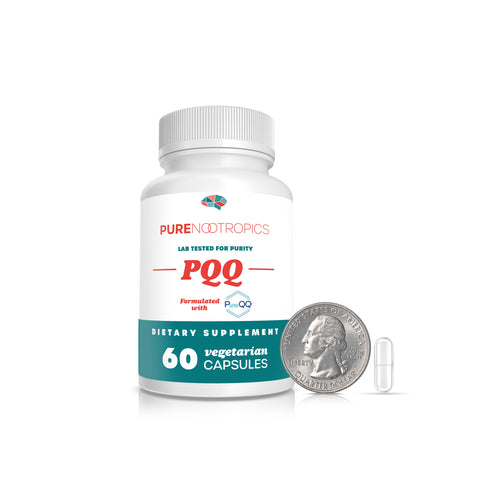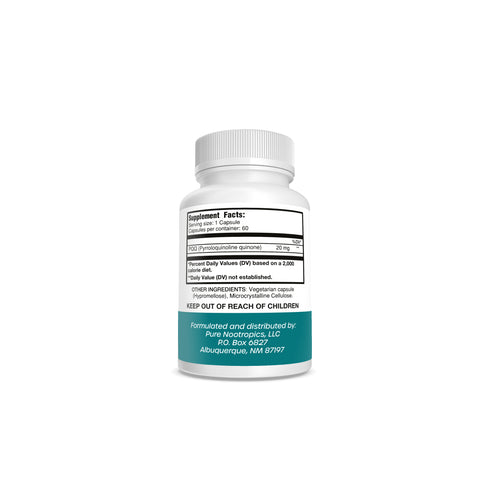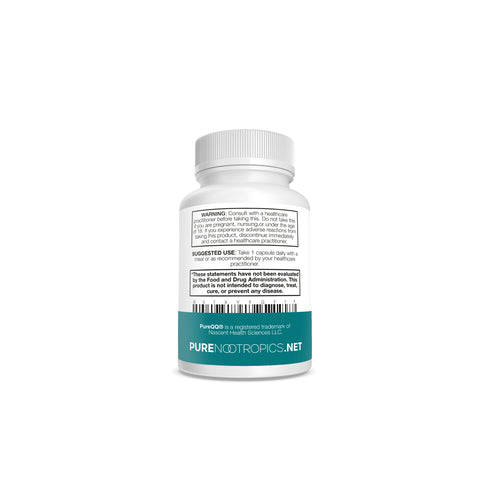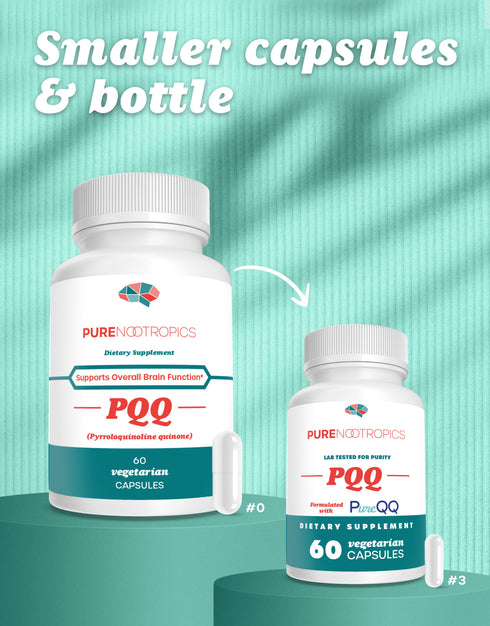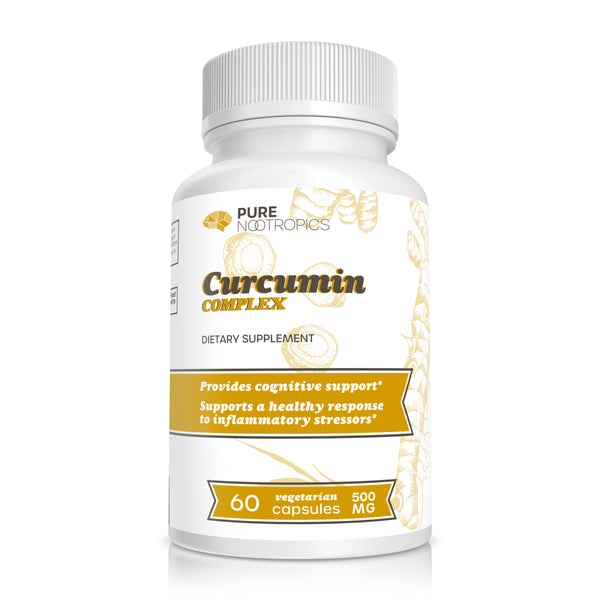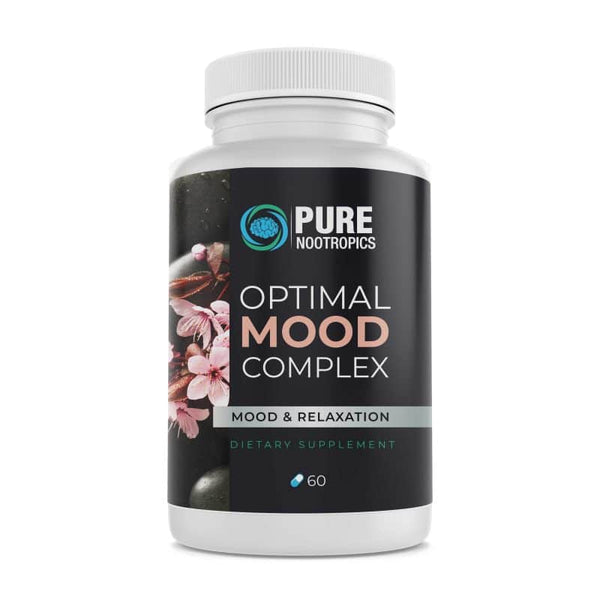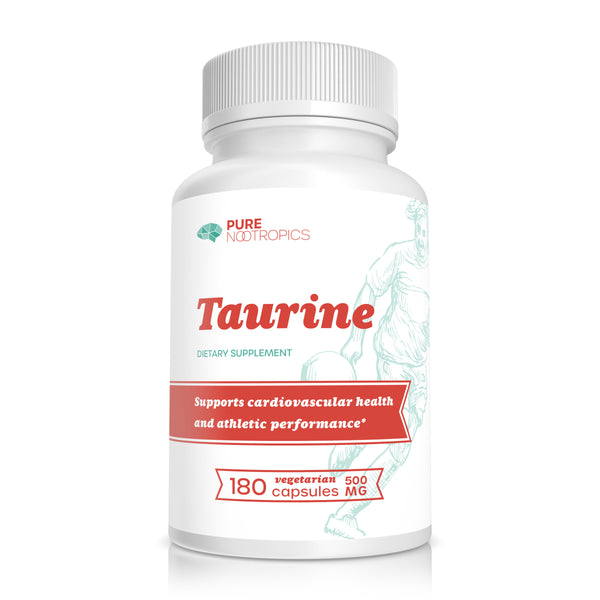PQQ (Pyrroloquinoline quinone) is a small bioactive, non-vitamin compound which acts as a REDOX (reduction-oxidation) agent and supports mitochondrial function (1).
PQQ (Pyrroloquinoline quinone) Benefits
Description
PQQ is a powerhouse molecule was once called a vitamin, but now we call it a bioactive non-vitamin compound. It’s a molecule that helps mitochondrial cells live longer and stay robust, equaling more energy!
Without mitochondria producing the building blocks of energy (ATP), there would be no human life. We are completely dependent upon the health of our mitochondria, but there’s a catch. In this energy producing process, mitochondria produce toxic byproducts known as reactive oxygen species: those pesky free radicals you hear so much about that damage to other cells and are involved in so many system deteriorations.
We have substances that go around fighting and scavenging these free radicals, but aging complicates things. As mitochondria age, the production of the byproducts builds up while the processes to keep them under check declines. There’s also a decline in their ability to make ATP, so it slows down the body even more.
PQQ enhances the function of mitochondria and can recycle those free radical neutralizers thousands of times before losing its ability to function as a REDOX agent. It supports cognitive function, especially in aging brains, while also reducing oxidative stress!
Dosage
Pure Nootropics PQQ provides 20 mg per 1 capsule. Suggested use for adults is 1 capsule (or 20 mg powder weighed on a digital milligram scale) by mouth daily with a meal.
If you are taking any medications, always consult with your Healthcare Practitioner before beginning any new supplement.
For further information, please see our references tab above.
The references below are not meant to imply that any of our products treat, cure, or diagnose any disease or human condition. References to clinical studies and pre-clinical studies may use varying dosages and may not represent the dosages or subsequent results of products we sell; however, the references provided are pertinent to the subject supplement itself. References provided are intended for research and informational purposes only and do not represent the entire body of knowledge available on the subject(s) referenced; nor do they represent all possible outcomes associated with the subject(s) referenced including, but not limited to, adverse effects, precautions, or chemical interactions within the human body. The Content provided on this website is not intended to be a replacement for professional medical advice, treatment or diagnosis. Never ignore the advice of a medical professional or delay in attaining professional advice because of information or impressions you gather on this website. Choosing to rely on any information provided by the Content of this website is solely at your own risk. We encourage our audience to do their own research beyond the resources we have provided so your decision is as educated as possible.
• Supports mitochondrial function*
Harris, CB, et al. “Dietary Pyrroloquinoline Quinone (PQQ) Alters Indicators of Inflammation and Mitochondrial-Related Metabolism in Human Subjects.” J Nutr Biochem, vol. 24, no. 12, Dec. 2013, pp. 2076–84., doi:10.1016/j.jnutbio.2013.07.008.
• Promotes cognitive function while aging*
Itoh, Y, et al. “Effect of the Antioxidant Supplement Pyrroloquinoline Quinone Disodium Salt (BioPQQ™) on Cognitive Functions.” Adv Exp Med Biol, vol. 876, 2016, pp. 319–325., doi:10.1007/978-1-4939-3023-4_40.
1. “Pyrroloquinoline quinone”. Examine.com, published Nov 20, 2013. Last updated Oct 10, 2018. https://examine.com/supplements/pyrroloquinoline-quinone/.
2. Chowanadisai, Winyoo et al. “Pyrroloquinoline quinone stimulates mitochondrial biogenesis through cAMP response element-binding protein phosphorylation and increased PGC-1alpha expression.” The Journal of biological chemistry vol. 285,1 (2010): 142-52. doi:10.1074/jbc.M109.030130
3. Nakano, M, et al. “Acute and Subchronic Toxicity Studies of Pyrroloquinoline Quinone (PQQ) Disodium Salt (BioPQQ™) in Rats.” Regul Toxicol Pharmacol, vol. 70, no. 1, Oct. 2014, pp. 107–21., doi:10.1016/j.yrtph.2014.06.024.


